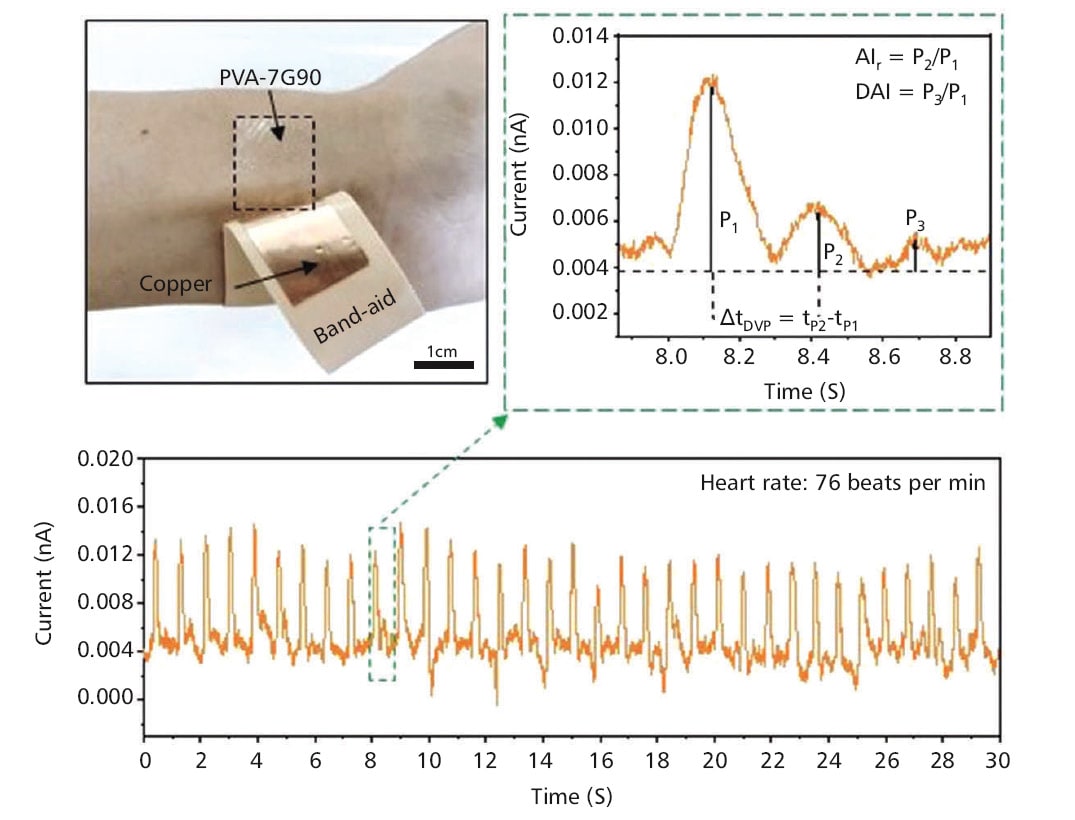Breakthrough in Wearable Cardiovascular Monitoring
Researchers at Purdue University have developed innovative, self-powered, wearable triboelectric nanogenerators (TENGs) that utilize polyvinyl alcohol (PVA)-based contact layers to monitor cardiovascular health. These advanced devices convert mechanical energy into power, enabling the detection of subtle skin deformations caused by human pulse and capturing cardiovascular information with high precision.
How It Works
The TENGs incorporate PVA, a widely used polymer in biomedical applications, transformed into wearable, self-powered triboelectric devices. These devices can identify distinct peaks in pulse signals corresponding to blood ejection, reflection in the lower body, and rejection from the closed aortic valve. This capability may facilitate the detection of common cardiovascular diseases such as coronary artery disease and ischemic heart disease.
Advancements Over Traditional Methods
Current methods for monitoring cardiovascular health, such as echocardiograms and photoplethysmography, can be invasive and have not been adapted for wearable, personalized monitoring. In contrast, the PVA-based TENGs offer a non-invasive solution with fast readout capabilities. The use of PVA in these devices presents valuable opportunities for future wearable, self-powered biomedical devices that can harness mechanical energy from the human body to support their operations.
Image: Innovative Wearable Technology

The development of these wearable devices marks a significant step forward in cardiovascular health monitoring, potentially enabling more personalized and on-demand health tracking. For further information, contact Chris Adam at [This email address is being protected from spambots. You need JavaScript enabled to view it.](mailto:This email address is being protected from spambots. You need JavaScript enabled to view it.); 765-588-3341.


